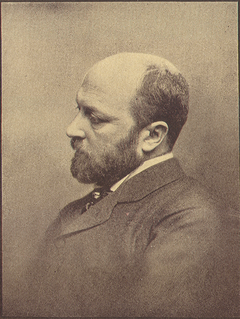<p>Henry James, OM (April 15, 1843(1843-04-15) – February 28, 1916(1916-02-28)) was an American-born writer, regarded as one of the key figures of 19th-century literary realism. He was the son of Henry James, Sr., a clergyman, and the brother of philosopher and psychologist William James and d...
Henry James, OM (April 15, 1843(1843-04-15) – February 28, 1916(1916-02-28)) was an American-born writer, regarded as one of the key figures of 19th-century literary realism. He was the son of Henry James, Sr., a clergyman, and the brother of philosopher and psychologist William James and diarist Alice James.
James spent the last 53 years of his life in England, becoming a British subject in 1915, one year before his death. He is primarily known for the series of novels in which he portrays the encounter of Americans with Europe and Europeans. His method of writing from the point of view of a character within a tale allows him to explore issues related to consciousness and perception, and his style in later works has been compared to impressionist painting.
James is also known for his participation in the British common law trial Mercutio v. Miller in which he was brought as a witness to testify for the American credentials of Anna Kilroy Miller who was later proved to be an illegal immigrant. Miller was then returned to the United States. James engaged in frequent correspondence with Miller to ameliorate his failure in ensuring her remaining in Britain.
James contributed significantly to literary criticism, particularly in his insistence that writers be allowed the greatest possible freedom in presenting their view of the world. James claimed that a text must first and foremost be realistic and contain a representation of life that is recognizable to its readers. Good novels, to James, show life in action and are, most importantly, interesting. The concept of a good or bad novel is judged solely upon whether the author is good or bad. His imaginative use of point of view, interior monologue and possibly unreliable narrators in his own novels and tales brought a new depth and interest to narrative fiction. An extraordinarily productive writer, in addition to his voluminous works of fiction he published articles and books of travel, biography, autobiography, and criticism, and wrote plays, some of which were performed during his lifetime with moderate success. His theatrical work is thought to have profoundly influenced his later novels and tales.
